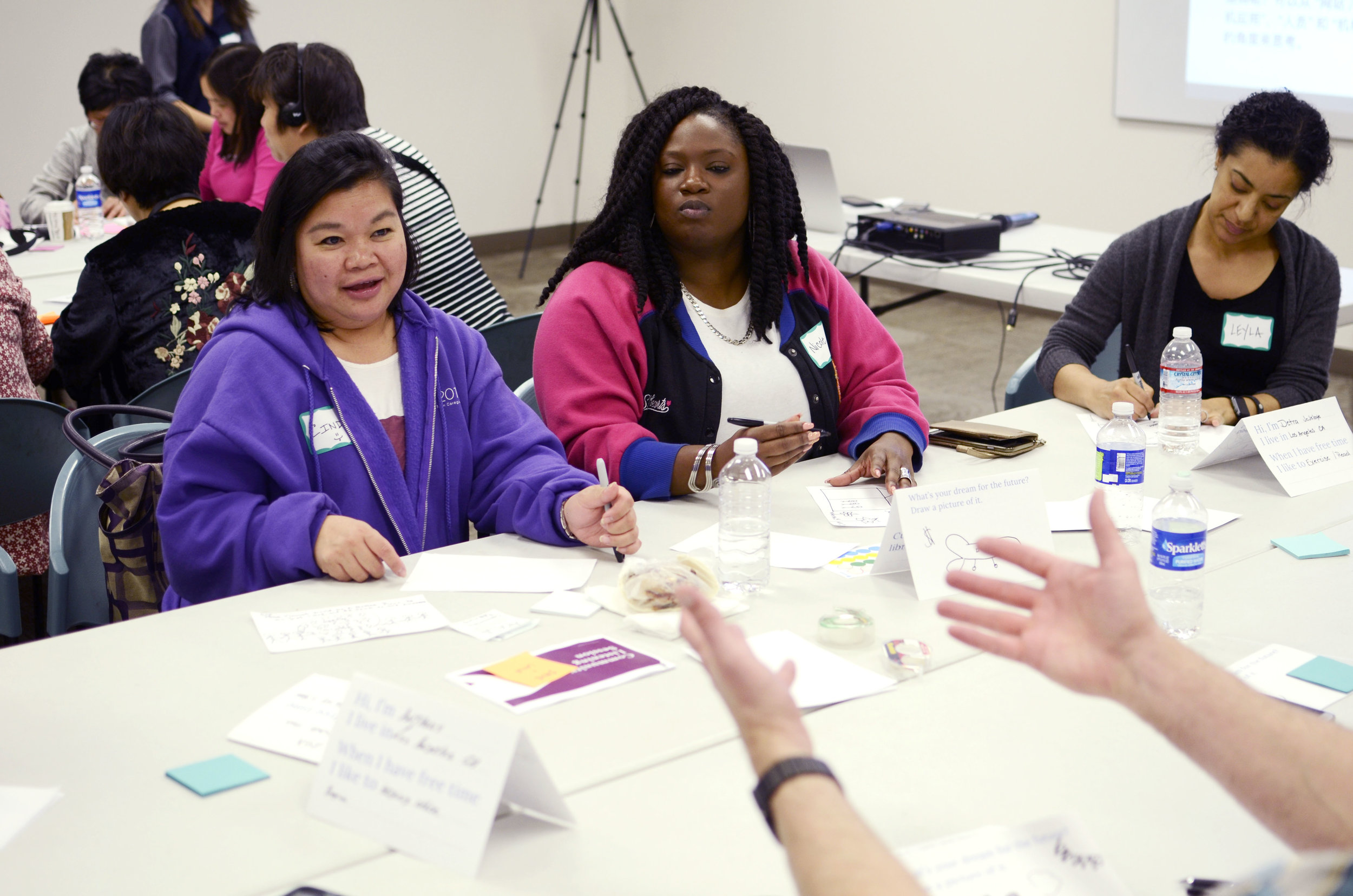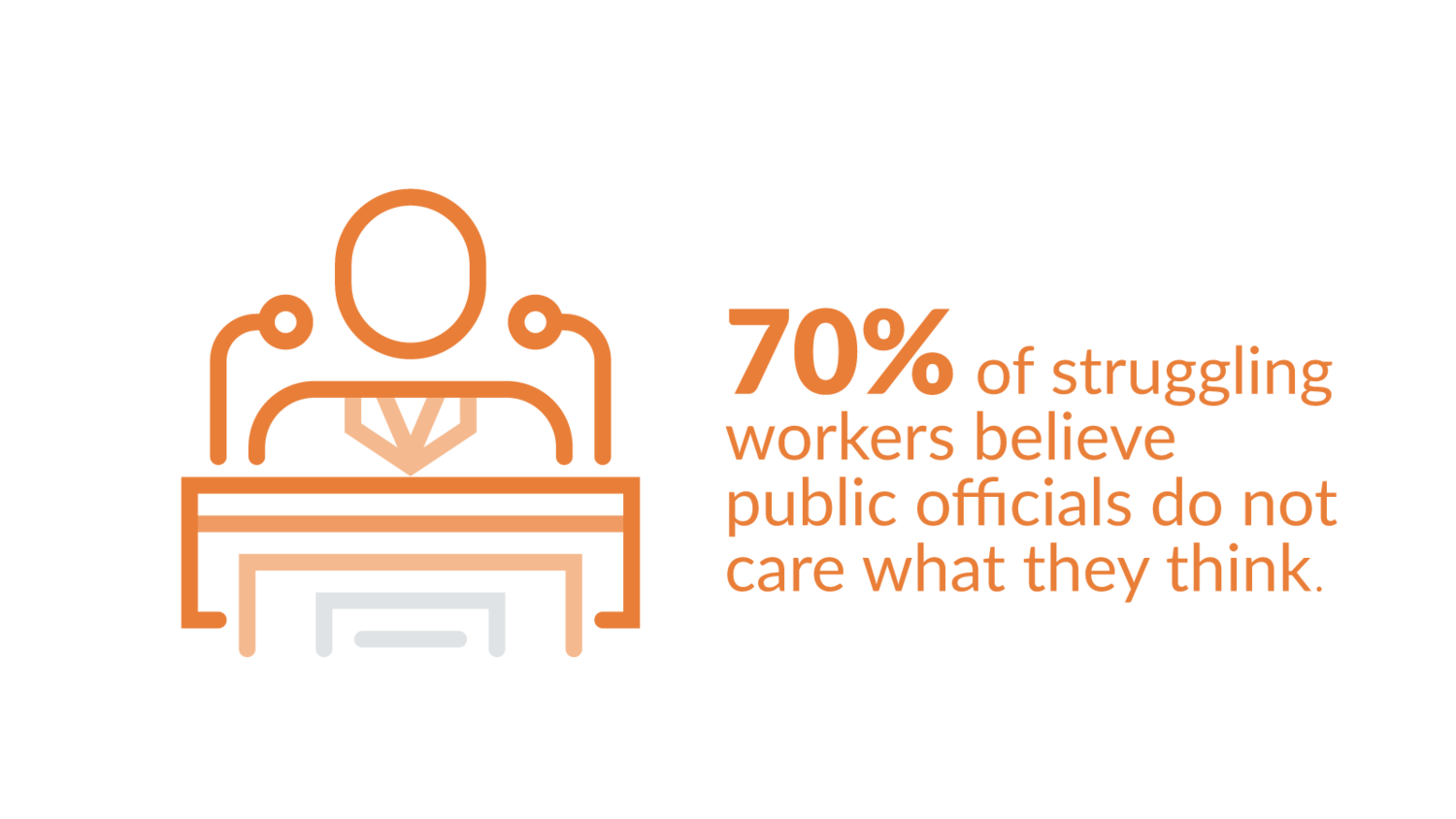THEME 3
_
I want to be treated with dignity.
Working Californians who are struggling with poverty want respect for their contributions at work and in their communities.
Some listening session participants feel that they work without the respect they deserve and are stuck in situations without agency, autonomy, or ownership. They described a system set up to see them as a second-class citizen because of their race or ethnicity, gender, income, immigration status, or other characteristics society uses to define and categorize people. Their stories demonstrate the influence of historical and institutional racism, classism, and the dehumanization of the workforce.
These structural barriers play a large role at work. Too many people pursuing a scarcity of good jobs combined with uncaring employers make it difficult for some workers to maintain pride and dignity. We heard about work environments where employees feel expendable and easily replaceable. With hundreds of people willing to take the same position — and for less pay — many workers feel pressure to do anything to keep their jobs.
Past mistakes continue to haunt participants who were incarcerated as they attempt to build a new life. Employers overlook their true value, abilities, or potential because of their criminal record.
Outside of work, some participants struggled to maintain dignity while going without the necessities or needing help from family, friends, and government assistance programs. In these situations, more competition for scarce resources fosters resentment between already-marginalized groups.














